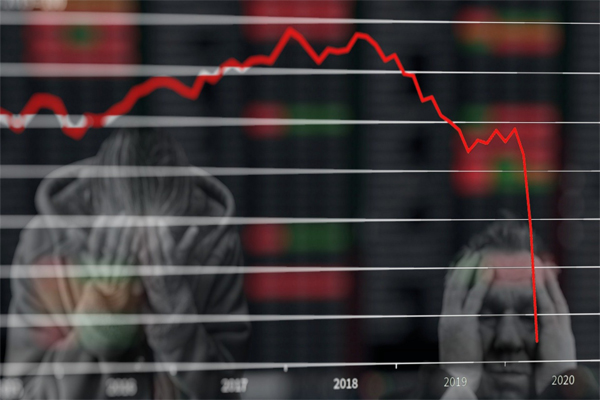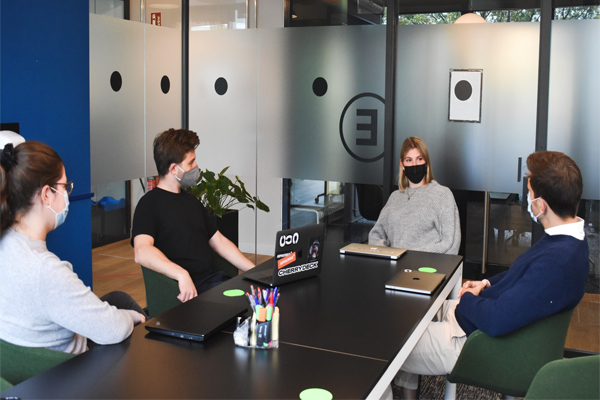Talent reigns supreme as recruiting and retaining the best and brightest remains the top priority for CEOs globally in 2021, according to the latest survey from The Conference Board.
The survey gauged 900 CEOs and C-suite executives from around the world about their biggest business challenges and priorities in 2021. Regardless of a company’s location or size, attracting and retaining top talent ranks as the top concern for CEOs and C-suite executives globally this year. This was also true in 2020. The second concern among CEOs globally, is the risk of recession. Other “top stressors” for CEOS worldwide include Covid-19, vaccine availability and accelerating digital transformation.
The pandemic has also accelerated the need for creativity. CEOs globally rank accelerating the pace of digital transformation as another “top priority”. Improving innovation ranks second as a top priority for both US and global CEOs.
RECESSION FEARS
The report found that Chinese CEOs are more worried than US chief executives about another downturn. They rank recession risk as their top worry, compared to third for US chiefs. CEOs worldwide rank recession as there second top concern. As recession fears linger, companies will remain defensive about prioritising cash flow and controlling costs, notes the report. Globally, chief executive rank the need to control costs fourth on their list of concerns; compared to third for US CEOs.

“While CEOs continue to fret about a possible downturn, 2021 is poised to be the light at the end of the pandemic tunnel,” according to Dana Peterson, Chief Economist at The Conference Board. “In most regions – especially the US – CEOs believe the distribution of a successful vaccine will have a significant impact on their businesses this year. The spread of Covid-19 vaccines will, among other benefits, provide greater clarity and predictability around short-term planning and operations.”
In fact, American CEOs believe that vaccine distribution will have a huge impact on their businesses. They see vaccine availability as “a game changer”, whereas Chinese CEOs don’t think it will have as much of an impact (ranking it ninth) compared to US bosses who (who rank it third).
RETURN TO THE WORKPLACE
Few CEOs plan to further increase or decrease their remote workforce as remote work stabilises, notes the study. However, US CEOs are the most eager to bring workers back to the physical office space. Returning to the office ranked ninth as a priority for CEOs globally, compared to third for US bosses.
Rebecca Ray, Executive Vice President, Human Capital of The Conference Board, believes that in 2021, “a hybrid model with a mix of onsite and remote workers will likely be the new norm”. In this environment, as new employees join teams and have little personal contact with existing team members, leaders will need to ensure that all have a sense of belonging. “Organisations should take a hard pause to ask themselves: Is the culture we had – and, perhaps, want to preserve – the right culture for this new environment?” notes Ray.

REDUCED BUSINESS TRAVEL & MORE AUTOMATION
American chief executives also expect a reduced need for office space and believe this to be the most likely long-term impact of Covid-19. CEOs globally rank this scenario as the fifth most likely long-term impact.
CEOs globally believe that reduced business travel is likely here to stay. Bosses worldwide also expect automation to accelerate. American CEOs rank more automation of tasks as the third most likely long-term impact of Covid-19. Globally chief executives rank this scenario as the second most likely long-term impact.
“Looking beyond reduced business travel, altered landscape of commercial office space, and increased automation of tasks, CEOs believe the need to address the resilience of global supply chains will be one of the most likely long-term legacies of COVID-19,” pointed out Ataman Ozyildirim, Global Research Chair of The Conference Board. “During the pandemic, many policymakers and companies learned that a heavily optimised supply chain often lacked the agility to substitute alternate sources of supply. While concerns about global trade disruptions diminished recently, the global pandemic has exposed new vulnerabilities in supply chains.”
REGULATION & TAXES
Finally, US CEOs are more worried about regulation and taxes, and less worried about trade and global turmoil. In 2020, concern about corporate tax rates was US CEOs’ fourteenth top concern; but it shot up to fifth place for 2021. Worries over regulation shot up to fourth position for this year, compared to ninth last year. However, concerns over trade disruptions and global political instability dropped from fourth place (for both) to seventh and tenth, respectively.
“The current crisis means the luxury of having a years-long lead time to digitally transform is gone. Investment in digital technology is only a piece of that puzzle,” commented Chuck Mitchell, Executive Director of Content Quality of The Conference Board. “Organisational culture, enlightened leadership and talent will ultimately create a sustainable competitive advantage. Recovery will require finding the right balance between conserving cash and investing in innovation needed to succeed in a new commercial landscape.”
However, companies will need to work harder to engage staff if they want to retain their top talent, as reported. Click here to read more.







































